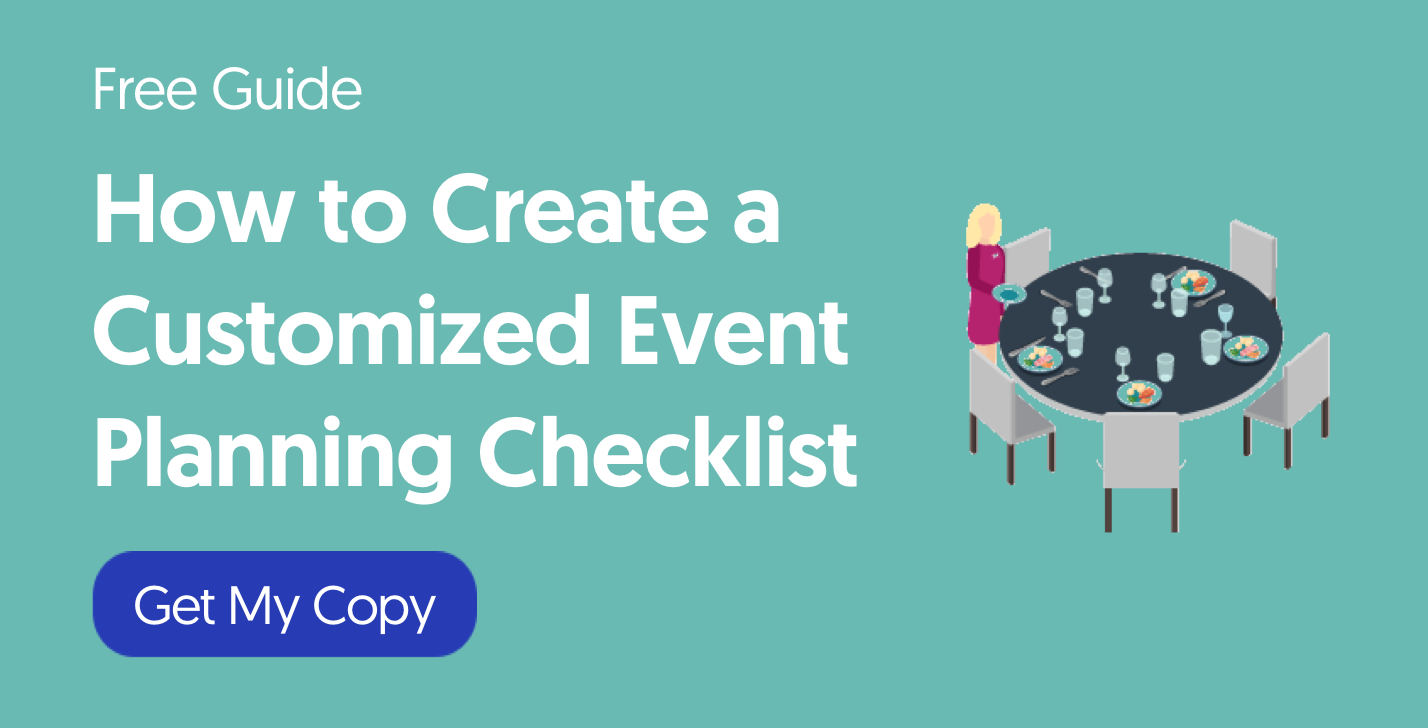
How to Pick an Event Caterer: 10 Critical Steps to Pick the Best (and Key Questions to Ask )
Hiring a caterer is about more than just the quality of the meal”caterers must also keep calm under pressure, communicate efficiently and thoroughly with a variety of people, manage waitstaff, show flexibility, and anticipate issues that may arise.
When interviewing caterers, don’t hesitate to ask tough questions. You need to ensure the catering company has the experience”and flexibility”to meet your needs. Explore our 10 tips for picking the best event caterer”plus, the most important questions to ask during caterer interviews to narrow down your options.
How to hire the right caterer for your event in 10 steps:
1. Consider your event size and specific needs when choosing a caterer.
The caterer you hire must be able to handle the number of people you plan to invite and the complexity of the service. Sometimes, you’ll need appetizers served during a cocktail hour, a three-course meal with wait service, and a dessert spread. Other times you may need a simple buffet, or only light appetizers.
What types of catering are there?
There are two general ˜types’ of catering:
- On-premise catering: the food is prepared at a kitchen on-site.
- Off-premise catering: the food is prepared at another location and delivered to the event.
Events caterers may specialize in different event styles, including:
- Corporate catering for meetings, conferences, and trade shows
- Office events such as holiday parties and awards dinners
- Personal events catering for parties and social gatherings
- Wedding catering and formal events
Within these types of catering, there are catering service styles as well.
- A plated dinner service is a seated multi-course meal. This traditional style is ideal for formal events, but can be pricey and requires a more extensive serving staff than less formal options.
- Buffet tables are a casual option that allow more choices for guests and require less serving staff. A serve-yourself-style meal, however, means guests are likely to eat more food, which can eat away at the budget.
- Food stations are similar to buffet-style catering: Tables are arranged throughout the venue, usually with a station for each entrée, sides, salad, and soup. Lines may be shorter than at a traditional buffet, but this layout requires more room to fit the stations.
- Cocktail-style”with passed or buffet-style hors d’oeuvres”can range from elegant to light and casual. This style is popular at venues with limited seating space, but can be a challenge if the area is crowded.
- Action stations are similar to a buffet, except meals are prepared as attendees watch the show. Action stations require more space, so ensure your event floor plan allows enough room.
- Family-style meals are a serve-yourself style meal. Guests plate their own meals from communal platters placed on the table.
- Food truck catering involves one or more food trucks serving up fun dishes and experiences, generally (but not always) outdoors.
- Light, casual fare such as a finger food bar.
Questions you should ask catering companies about their experience:
- Do you belong to and participate with business associations?
- What events with a similar theme or type have you catered?
- How many events do you book per year?
- How many events are you catering on the day of my event?
- What size events do you cater most often?
- How many guests can you accommodate?
- Do you specialize in any specific service style?
- Can you provide references for similar events you have catered?
- Who is the on-site coordinator or manager for the event? Who replaces this person if they are unable to attend?
- How long does each service style take?
2. Keep in mind your event’s location when hiring a catering company.
Location is crucial. Consider the caterer’s business location and the distance they will travel to cater your event. If they don’t attend events in your area often, they may have difficulty with the venue. Find a caterer who knows your venue or at least has experience with a similar venue. If you choose a company that is not familiar with your venue, ensure they’re able to work with the location. You don’t want to find the food truck you hired can’t pass through the venue’s narrow driveway arch or that the outdoor electrical hookup doesn’t have enough power.
Ask your venue if they have worked with the caterers you have in mind. (And ensure they don’t require approved vendors only.) The benefits of selecting a caterer who know the venue include familiarity with the venue layout, kitchen, and prep areas, as well as established teamwork with the venue staff.
Questions to ask the caterer regarding the event venue
- Have you catered an event at this venue before?
- Do you provide equipment, serveware, linens, etc. or must we rent them elsewhere?
- Does your company provide”and set”dinnerware?
- How long do you need to set up and break down?
- When will you need access to the venue?
- Does this location allow adequate access to electricity, water, and refrigeration space?
- What delivery logistics must we consider?
3. Be specific about your expectations and need for flexibility.
Party planners and hosts have the stressful job of preparing for anything that could happen, so it makes it easier on everyone if all parties are as flexible as possible. This is especially true when it comes to food. Food allergies, dietary restrictions, and preferences can complicate things, so having a chef that foresees and prepares for these details is essential.
When interviewing caterers for the job, ask them about any last-minute changes they’ve faced to get a sense of their creative problem solving and planning abilities.
How will they adapt if specific menu options fall through? What if lobster prices rise and are no longer within budget, the farm they were sourcing local, organic beef from informs them on short notice that they can’t provide enough, or the venue’s outdoor BBQ pit breaks before the event? Keep in mind, flexibility only goes so far: Don’t expect a BBQ catering company to provide a formal plated dinner service.
Questions to ask your caterer readiness and adaptability:
- Can you provide sample menus?
- Do you have a cuisine specialty?
- Do you allow custom menus, or do you offer a pre-set menu?
- Do you allow substitutions or customization to your set menu?
- Are there additional fees for custom menus?
- Can you accommodate specific dietary restrictions?
- When do we finalize the menu?
- What is the cutoff for menu updates or requests?
- Do you provide bar service and alcohol?
- Is the bar service included in the cost?
- Do you have any preferred vendors?
- Do you provide vendor meals, and what is the cost?
4. Check out the event caterer’s customer reviews.
You want to trust that your caterer will follow through with their promises. One of the best ways to do that is to seek out referrals and reviews. If a trusted source recommended the caterer, ask other colleagues if they have worked with them and have similar high praise.
Also, check online sources for reviews and event photos, such as Facebook, Twitter, Instagram, Yelp, and event planning forums. Explore the testimonials included on the company website, as well”this will show you what the business views as important measures of quality.
Questions to ask catering references and referrals:
- What kind of event did you host, where was it, and how many guests attended?
- How would you rate the catering company’s responsiveness?
- Did the company provide exceptional service?
- Was the waitstaff efficient?
- Were you satisfied with the quality, amount, and presentation of the food?
- How did the estimate compare with the final cost?
- What challenges did you have while working with the caterer?
- What is your overall impression of this catering company?
5. Review the event caterer’s costs.
This may seem like an obvious one, but pricing is important. Catering costs can become exorbitant, and quickly. Weigh your options, and look out for hidden event budget fees. There will always be some give and take, but you don’t want to go too low or too high. Weigh all your expectations, the size of the event, and the type of food you’d like, and then think about what you expect in return.
Be wary of a caterer who gives an exact quote during your first conversation: Too many factors are at play at this point. A caterer may give a price range, but you will get a better idea of costs when you receive a full written proposal for your specific event.
Compare catering proposals: While one caterer’s per-plate charge may be less, they may not cover the cost of disposables and linens, or they may charge additional uncorking fees. Comb through all catering proposals for a solid understanding of what you’re getting for the cost. And, don’t forget to negotiate with the caterer”you may be able to balance the price with substitutions, off-season deals, free upgrades, or sourcing alcohol from outside vendors.
Questions to ask regarding catering service proposals and costs:
- Has the tip been included in this quote?
- What overtime fees should I be aware of?
- Are there any additional fees to factor in?
- Does this quote include required kitchen and prep equipment, or transportation and delivery fees for food prepared off-site?
- What services are included?
- What services are not included?
6. Ask to see the event caterer’s certifications and insurance coverage.
As soon as you find out who you want to hire, ensure they have the necessary certifications and insurance. If they aren’t able to provide these types of certificates to you immediately, move onto the next candidate before you have a disaster on your hands. It’s a good idea to know the details of the caterer’s insurance coverage, so you or your client don’t spend money on overlapping event coverage.
Questions to ask about certifications and insurance:
- What certifications do you hold?
- Are you licensed to serve alcohol?
- What insurance do you carry?
- May we review your insurance policy?
- Are there any additional permits required for you to cater my event?
- If additional permits are required (such as food truck permits), who is responsible for acquiring them?

7. Find out about the caterer’s food preparation methods.
Ask how and where the food will be prepared and the delivery logistics, especially if the kitchen is offsite. Ensure your event budget covers the cost of delivery and setup, and create your master event timeline accordingly. Off-site food preparation comes with a few cons, including possible late deliveries and limited menu items because some meals don’t travel well. On the pro side: lower catering costs.
Questions to ask regarding food preparation and delivery:
- Where do you prep and cook the food?
- How is the food transported to the venue?
- Do you provide buffet table set-up and chafing dishes?
- Can I tour your kitchens?
8. Decide the number of catering staff you need available during your event.
Your caterer should be able to provide an appropriate amount of staff for your event. The correct number of staff depends on the service, whether buffet-style, a plated sit-down meal, or passed appetizers.
Here’s a rough estimate of how many catering and serving staff you can expect:
- One to two servers for every 20 guests, more for wine service
- One or two additional staff for every three servers to clear tables
- At least one bartender and barback per 50 guests
It may be possible to reduce the number of staff, thereby reducing the final cost, by adjusting some service details. Consider self-service pitchers of water, guests ordering wine from the bar, or and buffet-style service.
Questions to ask regarding staff and servers:
- Do you work with the same crew for all events?
- Are servers hired from an outside agency or are they your own staff?
- What is your typical guest-to-server ratio?
- What do your staff uniforms look like?
- Who manages the staff on-site?
- Who is responsible for cleanup, and what does ˜cleanup’ include?
- How long will the bar be open?
9. Schedule a tasting and see what the caterer has to offer.
No matter how perfect the description is, no matter how beautiful the pictures are, ask to attend a tasting, especially if you haven’t personally worked with the caterer before.
What is a catering tasting?
If you’ve signed the contract, a catering tasting is an opportunity to decide which dishes to serve at your event. If you have not yet signed the contract, it is an opportunity to see what the company can deliver.
How long does a catering tasting last?
A catering tasting usually lasts between two to two and a half hours.
What happens at a catering tasting?
A tasting lets you see what dishes best suit your event and narrow down your menu options. Caterers may serve plated meals or tasting portions of appetizers, entrees, salads, and desserts. The chef may serve a pre-set tasting menu or may allow you to request specific dishes.
This is also a time to request adjustments to the dishes you have chosen”a different vegetable option, less salt in the sauce, an adjustment to plating, or other small swaps. More significant changes may be possible, depending on the contract.
Is there a fee for a catering tasting?
Caterers may provide a complimentary tasting after a contract has been signed, but not before. There may be a fee tastings before signing agreements.
Do you tip at a catering tasting?
If you are served by waitstaff, yes. If you are served by the chef, no.
A tasting can give you an idea of the caterer’s ability as a chef, but remember that cooking for a tasting is not the same as catering for a large group. Ensure the company has the experience to cater a large event.
Questions to ask at a caterer tasting:
- Will the presentation be the same on the day of the event?
- Are meals transported in a warming unit or plated to order?
- What is the portion size?
- Do you have photos of past events”rather than promotional photos”so I can see what the finished product looks like?
- What specific dish do you most enjoy cooking for events?
- Which menu do you recommend for my event?
10. Get proposals and examine catering contracts.
From the aesthetics of the food to the clauses written explicitly in your contract, the details are crucial. You should have a signed catering contract, no matter the event. It protects you, as well as the caterer and the venue. Discuss everything in the contract with your caterer so there are no surprises, and the kinks are worked out prior to your event.
As you finalize the details”and before signing on the dotted line”pay attention to the caterer’s responsiveness to email, phone calls, and specific requests. If they are slow to get back to you or poor communicators, they may not be the right event partner.
Questions to ask regarding the catering contract:
- When will I receive a written contract?
- When is the final headcount due?
- How do you handle late additions to the guest list?
- Can you explain your payment policy, deposit requirements, and additional upfront costs?
- What is your cancelation policy?
- Can you explain your service charges?
- Can we take home leftover food after the event?
When should you book an event caterer?
How early you book a caterer depends on the type of event you’re hosting. For popular caterers, busy seasons, and wedding receptions, you should plan to have contracts signed at least six months before your event”more for in-demand companies. For corporate events, two months may be enough time, depending on the complexity. A caveat: The venue should be booked before you sign a catering contract to prevent conflicts.

Make the most of every catering meeting and hire the right fit:
Catering companies bring events to life with delicious food, drinks, and desserts”and choosing the perfect caterer for your event takes planning, research, and thoughtful questions. Prepare for your conversations with potential caterers so you can make the most of your meetings.
Learn more about hiring the right event staff across specialties. Or discover the 6 clauses to include in every event planning contract.
